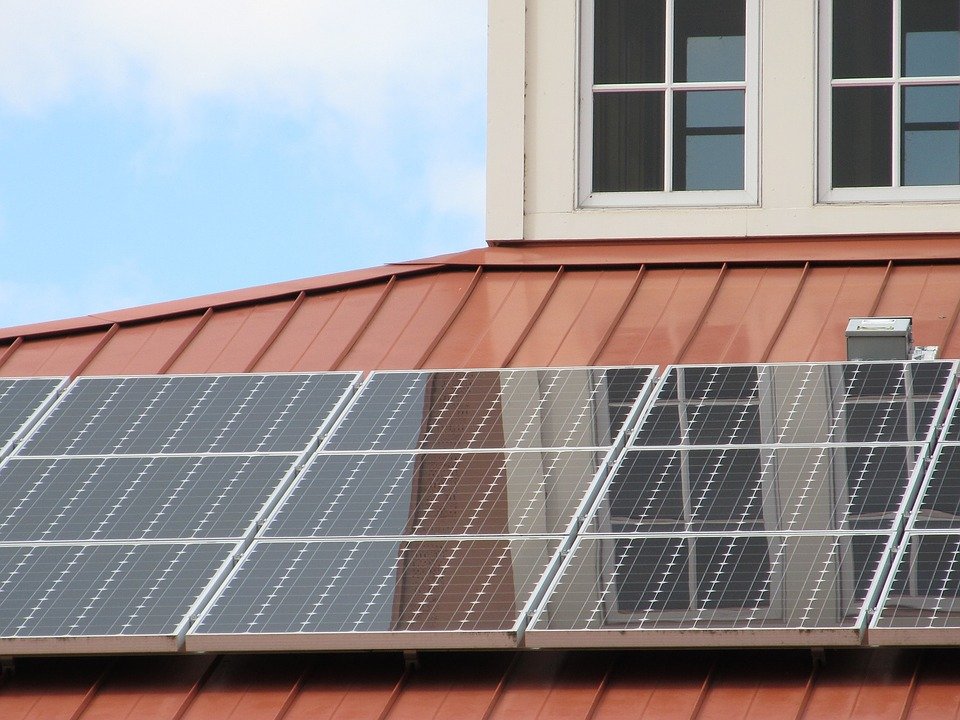The government is offering more generous grants and subsidies for roof insulation and photovoltaics as part of a general push to address climate change and ease the cost of electricity, details of which were released on Wednesday.
The scheme has a more generous budget – up 40 per cent to more than €20m for 2022-2023 – with the possibility of a further increase, with grants seeing a rise of 50 per cent, the energy ministry said. Funds have been secured from the Recovery and Resilience scheme Cyprus Tomorrow.
Energy Minister Natasa Pilides said that a more generous budget and improvements to the scheme were part of the huge effort underway by the government to support households cut energy costs.
The schemes will help more people install photovoltaics and implement energy-saving measures to reduce their electricity bills, she said.
“At the same time, increased penetration of renewable sources of energy and upgrades of buildings contribute to implementing the national strategy for a speedy transition to green energy which provides, among other, for a gradual transition away from fossil fuels and the reduction of greenhouse gas emissions,” she said.
The grant scheme to encourage use of renewable energy on existing residences will be retroactive, allowing for a smooth transition from the previous scheme which expired on December 21. The new scheme will be in force until December 20, 2023, or until funds are exhausted.
The scheme, currently being reviewed for final approval, will provide subsidies for photovoltaics and/or roof insulation, energy ministry official Yiorgos Tsiamettis said.
The scheme covers photovoltaics for buildings that secured a building or town planning permit before January 1, 2017. The subsidy is €375 per kilowatt, with a maximum grant of €1,500. In line with policy to support mountain communities, households there are eligible to 50 per cent more. Vulnerable households are subsidised with €1,000 per KW, up to a maximum of €5,000.
Grants to insulate roofs cover buildings that secured a building or town planning permit before December 12, 2007. The grant can be as high as 45 per cent of eligible expenditure, with a maximum of €2,250. Again, for mountain communities, grants are up by 50 per cent.
The combination of both photovoltaics and roof insulation applies to buildings with a building or town planning permit prior to December 12, 2007. Grants cover 55 per cent of eligible expenditure for insulation with a maximum of €2,750 while installing photovoltaics is subsidised to the tune of €450 per KW, with a maximum grant of €1,800. For mountain communities, grants are up by 50 per cent
Tsiamettis noted that grants are up 50 per cent, while vulnerable households and mountain communities also receive higher amounts than the previous schemes.
Indicatively, in the case of roof insulation of a 130 square metre home for a cost of €5,600, energy savings are calculated at 6,782 Kwh or €1,300 a year. With a grant of €2,250 and €3,375 in the mountains, depreciation will take 2.5 and 1.7 years respectively.
Installation of a 4KW photovoltaic system at an indicative cost of €5,000 and annual costs of use of the network of €350 can bring savings to electricity bills of €800 a year. With an estimated grant of €1,500 and €2,250 in the mountains, the money invested can be earned back in 4.5 and 3.5 years respectively, he added.
And a combination of the two would carry a cost of €10,000. Applicants would be eligible for a grant of €4,450 or €6,825 in the mountain, with investment earned back in 3.5 and 2 years respectively as a result of an anticipated saving of €1,500 in energy consumption a year.
Participants were also briefed about the €600,000 solar water heater scheme that was first announced on May 10. The scheme, 35 per cent higher than its predecessor, is open only to natural persons, with grants offered for investments in existing homes for which the application for a building or town planning permit was submitted before December 21, 2007.
The scheme covers complete systems (cylinder and solar panels) installed by licensed professionals. The grant is for €450 per home/system (up 28.5 per cent from the €350 of last year), while homes in the mountain areas qualify for double the amount — €900 (from €700 last year).
Solar water heaters can satisfy 70 per cent of annual needs for hot water per home, at no operational cost and with minimum maintenance, contributing significantly to reducing energy costs.







Click here to change your cookie preferences